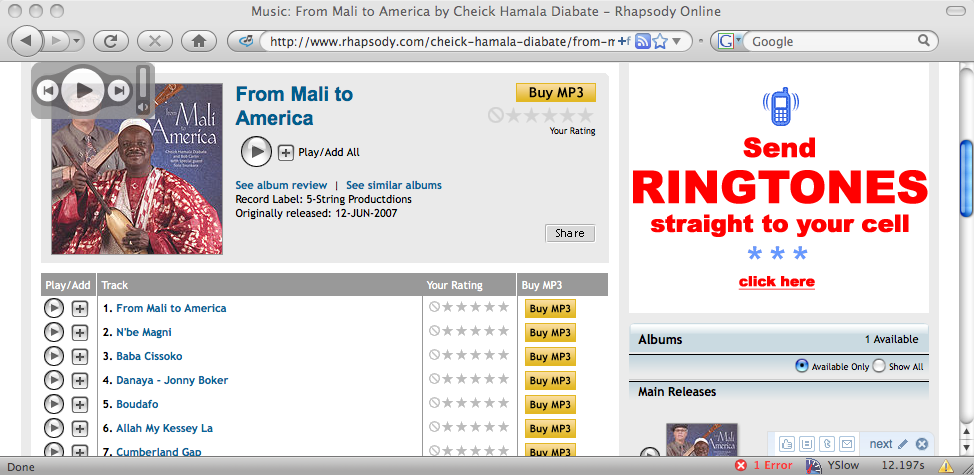Or that one.
Or the other one either.
And it’s not because I’m old and out of it, it’s because there are that many bands. I mean, I *am* old and out of it, but even if I wasn’t the answer would be the same.
MP3 blogs are a never-ending series of blockbuster microbands.
I’m not bringing this up to put down MP3 blogs or blockbuster microbands, but to point out that it almost never makes sense to think somebody else should have heard of an act that you know. The act might be huge in its genre, but genres are very thinly sliced. Every day of every year I hear another five new bands mentioned. The only thing that’s wrong with this picture is when you have to say “no, I don’t know them,” because that is almost always going to be the answer.


